Seminars & Masterclasses
__________________________________________________
2012 PCFMF Composer Events and Institute are being planned now
The Film Music Festival will include
Round Table Discussions with the Film Composers in Attendance at the Festival
At The Prospector, the Film Music Festival hosted day-long
Round Table Discussions with the Composers in attendance at the Festival.
During 2011 The afternoon sessions were
moderated by composer Tuomas Kantelinen, composer and producer of the winning film THE ITALIAN KEY.
On Sunday, composers in attendance were able to screen their projects for each other
and share their work and comments/critiques with their peers.
Discussions regarding adding a one-week institute or seminar for the 2012 Park City Film Music Festival
and the staff hopes to implement this plan for 2012.
Please contact lharlow@pcfmf.com for more information on the one-week institute.
Past Seminars - Scroll Down
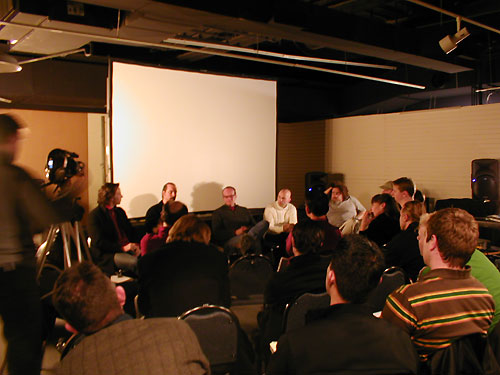
Left to Right: Emmy award winning composer Kurt Bestor, music supervisor Michael Rogers, world-renowned film composer/arranger/orchestrator and 2006 PCFMF guest of honor, Conrad Pope, award-winning film composer Vincent Gillioz, award-winning sound designer and sound editor Jim LeBrecht, and award-winning film composer Jeffrey Gold at the Roundtable Panel of the 2006 Park City Film Music Festival.
FILM MUSIC SEMINARS
The 2005 Park City Film Music Festival seminar was hosted by composer Mark Northam of the Film Music Institute (LA).
The 2006 Park City Film Music Festival masterclass was hosted by world-renowned composer, orchestrator, and arranger Conrad Pope (orchestrator and arranger for John Williams, Jerry Goldsmith, and many other film composers) and the seminars were hosted by sound designer and sound editor Jim LeBrecht of Berkeley Sound Artists, Emmy award-winning composer Kurt Bestor, award-winning film composer Vincent Gillioz, award-winning film composer Jeffrey Gold, and Music Supervisor and writer for Film Music Magazine, Michael Rogers.
The 2007 Park City Film Music Festival masterclass is hosted by two-time Emmy award-winning film composer Hummie Mann [Hummie Mann] and the seminars are hosted by Emmy award-winning composer Kurt Bestor [IMDb], award-winning film composer Vincent Gillioz [IMDb], award-winning film composer Jeffrey Gold [IMDb], and Music Supervisor and member of Live Chad Gracey.
There is a small fee of $50 to attend all the events and to attend screenings of films following the Seminars. This will be a wonderful opportunity for filmmakers, composers, musicians and sound designers to pick the brains of these pros.
Please Contact: Leslie Harlow at lharlow@isp.com to make a reservation to attend these events. You may register and pay online by following the directions below:
Four ways to register:
ONLINE REGISTRATION:
Click the Button to pay Registration Fee Securely Online using
CCNow. You will be automatically registered once you pay your fee and
will receive a confirmation by email.

To register by PayPal, send your payment of $50 to email address
chmusic@pcmusicfestival.com. You will be automatically registered once
you pay your fee is received and you will receive a confirmation by email.

REGISTRATION BY MAIL: If you would prefer to register by mail,
send your name, address, phone and email address to PCFMF Seminar, P O
Box 354, Park City, Utah 84060, along with a check for $50.00 made payable
to PCCMS. You will be automatically registered once your check is received
and will receive a confirmation by email, or by phone, if you do not provide
your email address.
REGISTRATION BY PHONE: Call 435-649-5309, leave your name and
number, ask for Seminar Registration, and we will return your call.
2007 Masterclass, Seminars, and Panels
Masterclass with two-time Emmy award-winning film composer Hummie Mann
Wednesday, January 24, 1:30-4:30 PM - 2007 PCFMF Film Music Lounge
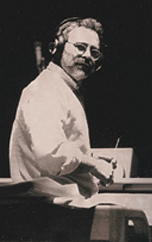
Seminar with award-winning film composer Vincent Gillioz
Saturday, January 27, 2:00-4:30 PM - 2007 PCFMF Film Music Lounge
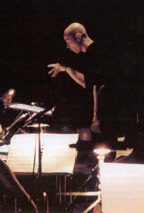
Something that can interest directors and composers, as well as present all the different functions of the music in a film, but in a fun way. A two hour film scoring class with a compilation containing 17 excerpts, very interactive, fun, and educational, covering the basics like what is source music and an underscore, and go as far as the very unusual use of music in Godard's "Pierrot le Fou".
Sounds and images form a film, that is to say that the score is an integral part of its film and can not be treated as a separate entity. There is no specific musical training required to be able to follow, understand, and enjoy this seminarâ€"it is designed for anybody, movie buffs, film directors, and composers. We will introduce the multiple functions of the music in the Western narrative cinema through the main approaches in legendary movies. Excerpts will be shown and analyzed (from Thelma & Louise, Batman, Breaking the Waves, Blade Runner, Tex Avery's Cartoons, Awakenings, Godard's Pierrot Le Fou, commercials, etc.). The class will cover the most elementary aspects of film music and the most refined manipulations as well.
We will cover the following subjects:
I. Physical function
a) to support of the visual, such as in cartoons (mickey-mousing)
b) to locate the environment, Example: The Abyss (new age style, electronic music, to illustrate the sea world)
c) to evoke the culture of the movie, Example: Kama Sutra (use of ethnic scales, instrumentation,...).
d) to evoke the period, Example: Tous les Matins du Monde (use of Renaissance music)
II. Psychological function
a) to evoke what a character feels at a non-verbal level (something not visually perceptible), Examples: Awakenings, North By Northwest, Vertigo,...
b) to mislead the audience in a certain direction to create a surprise, Example: To Kill A Mockingbird
c) to control the emotional atmosphere, Example: Psycho
d) to target a certain social class, in advertising it is very present, listen to the music they play with a sports car, or with a family car...
e) to suggest a philosophical level, Example: Dead Man Walking's Indian score.
III. Structural function
Music can support the architecture of a movie different ways.
a) Entering into the world of the movie. The music usually opens a movie and then allows the audience to "enter" the movie to be put in the appropriate mood. In the 30's and 40's, it was not uncommon to end the opening title on a suspensive note that would give the impression that the music is "unfinished", it gives a propelling quality to the movie at that moment, it pushes the interest of the audience further. They, then, are waiting for some kind of conclusion, that will not come until the very end of the movie. Example: The Sea Hawk.
b) Continuity. Music provides continuity to different cuts, or different scenes, related or notâ€"the music unifies them. Such as in Kansas City, the supporting music of a scene becomes, without stopping, the music played live in a bar in the next scene. The musical can also provide continuity on a wider scale, movies after movies; for instance, the James Bond franchise is connected through its very recognizable main theme, whereas the actor playing the main character has changed many times over the years.
c) Leitmotiv. The association of a theme/motive with a character of a movie. First it gives a continuity to the movie, but through the different variations of the leitmotive, it also allows the audience to draw some conclusion regarding the evolution of the characters, their relation to each other, or within a context. Example: The Red Violin.
d) The notion of time. The music can impregnate a peculiar rhythm to a movie, the ethereal score of Vangelis for Blade Runner alters our notion of time. Same for Philip Glass's score to Koyaanisqatsi.
Seminar with award-winning film composer, guitarist, and author Vince Lauria
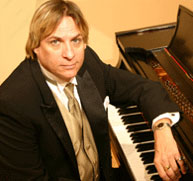
Saturday, January 20, 12:00-2:00 PM - 2007 PCFMF Film Music Lounge
Pop Music Progressions, Cues, and Digital Recording 101
1. Common pop song structures
2. How to approach creating movie cues
3. Basics of digital recording and common techniques
1. Common pop song structures
Songs studied in class:
Earth Angel by Penguins (1950's)
Like a Rolling Stone by Bob Dylan (1960's)
Let It Be by The Beatles (1970's)
Every Breath You Take by the Police (1980's)
Smells Like Teen Spirit by Nirvana (1990's)
Complicated by Avril Lavigne (2000's)
2. How to approach creating movie cues
Ideas for creating cues:
Ten, fifteen, thirty second, one minute formats
Dramatic pauses, dynamics, working with directors and sound engineers
Preparation, spotting, and first, second, and third drafts
3. Basics of digital recording and common techniques
Using the digital recording machine:
a. Proper recording levels (how loud or soft)
b. Playing with a click track
c. Creating proper grooves
d. rhythm and bass parts, keyboard
e. lead vocal and instrumental solos
f. inserting effects
g. mixing tracks - mastering
Seminar with award-winning film composer/playwright/screenwriter Jeffrey Gold
Saturday, January 20, 2:00-3:00 PM - 2007 PCFMF Film Music Lounge
Saturday, January 27, 1:00-2:00 PM - 2007 PCFMF Film Music Lounge
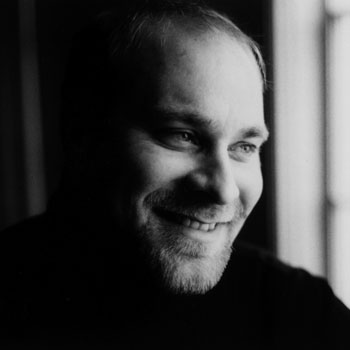
Film Music and the Physics of Storytelling
Drawing on a background in Science (Physics, Mathematics), Storytelling (Playwriting, Screenwriting), and Film Music, Jeffrey Gold will host an informal roundtable discussion with filmmakers and film composers who wish to discuss the structure and finer details of good storytelling:
Aristotle's six elements
Story (plot, subplot, backstory, frontstory)
Genre
Story types (1,2,8,10,36, or 53?)
Act 2 structures (lessons from a used car lot, 5 stages of death, organizational behavior, going to the mountain)
Dialogue (text, subtext, exposition)
Symbolism
Theme
Good films vs. Bad films
and any other subjects those in attendance wish to broach. If you are going to lay music on top of this animal called film, it might be useful to know of what that animal consists (fur, leather, feathers, or scales?).
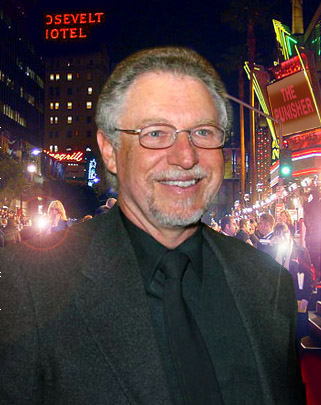
Panel Discussion with award-winning film composer Dennis Dreith
Friday, January 26, 1:00-3:00 PM - 2007 PCFMF Film Music Lounge
The Art and Business of Film Scoring
Composer Dennis Dreith (The Punisher, gAg) will host a rare "HANDS ON" panel discussion covering both the creative AND business sides of composing...learn first hand how Dennis' creates his unique music and also learn the nuts and bolts of licensing and publishing your music.
When do I need to get a license?
What kind of license do I need?
What is a synchronization license?
How is that different form a master recording license?
Can the change the lyrics?
How do I go abut getting the license?
How long does it take?
What about union fees?
What is a sound-alike?
How do I know if a composition is in the public domain?
Why can't I license a song I want to use?
Talk with music supervisor and member of Live Chad Gracey
Friday, January 26, 3:00-4:00 PM - 2007 PCFMF Film Music Lounge
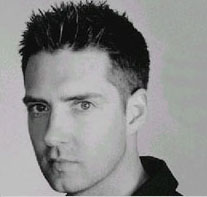
Subject: TBA
Workshop with singer/songwriter/author Gilli Moon
Wednesday, January 24, 4:30-7:00 PM - 2007 PCFMF Film Music Lounge
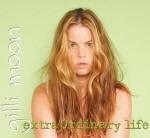
Subject: TBA
Live Performance with singer/songwriter Kathy Compton
Sunday, January 21, 5:30-6:30 PM - 2007 PCFMF Film Music Lounge
Live Performance with guitar virtuoso Vince Lauria
Sunday, January 21, 6:30 - 8:00 PM - 2007 PCFMF Film Music Lounge











